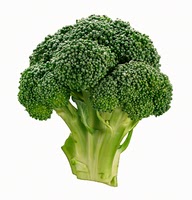Boosting your immunity

Like an invisible army, your immune system diligently patrols your body, working around the clock to fight bacteria, viruses, or other enemies that can poison your system.
Symptoms vs Illness
The first step towards strong immunity is to change how you think about symptoms. Contrary to popular belief, common symptoms, such as a cough, high fever, runny nose, a discharge, or a stomach upset, are signs your immune system is doing its job. Using drugs to ease symptoms of illness compromises your immune system, hampering its natural healing ability.
Treating your symptoms is not the goal of natural medicine. The premise of preventative medicine and the foundation stone of all natural health techniques is to ensure that your immune system is strong when you aren’t ill, so that it can fight invaders properly.
What affects your immunity?
A number of factors can affect your immune system. The most common offenders include the following.
Lack of sleep
While you sleep your body is busy repairing, rejuvenating, and healing. It’s also the time when your natural killer cells get on the move, fighting infection from foreign invaders. If you don’t’ sleep enough, this important aspect of your immunity can’t do its work, and the number of killer cells in your body falls, making you more generally prone to infection.
A poor diet
In no sense is the phrase, “you are what you eat” more true than with regard to protecting your body’s immune defences. Good nutrients are essential for every part of your immune system. When you eat healthily, you give your body the basic building blocks it needs for renewal, repair, and defence against illness.
Stress overload
When you’re under stress, your adrenal glands release too much cortisol, which hampers your immune response, increasing your risk of infection and inflammation, and, according to some studies, diabetes, cancer, autoimmune problems, early aging, and arthritis.
Overuse of antibiotics
The regular use of antibiotics upsets your gut’s balance of healthy bacteria, which help fight off invaders.
Too many toxins
Environmental toxins (in the air and water, and in your food) compromise your immune response because they divert precious energy from fighting infection to eliminating these harmful substances.
Emotional upset
Depression, unhappiness, anxiety, and a negative attitude to life all seem to have an inhibiting effect on immunity. Scientific studies consistently show that people with an upbeat, positive outlook have more robust immune systems.
It stands to reason that if all these factors weaken your immunity, avoiding them or working to overcome them will help boost your immunity. The most important immunity-boosters are to eat a healthy, immunity-boosting diet; to learn to relax; and to avoid environmental toxins by getting plenty of fresh, unpolluted air and eating organic foods.
 Your Diet
Your Diet
A good diet will keep you generally healthy, but you can also consume or avoid certain foods to specifically help your body fight off bacteria, yeasts, and viruses.
Avoid sugar Studies show that diets high in sugar can reduce the ability of neutrophils (white blood cells) to engulf and destroy bacteria and inhibit the ability of infection-fighting lymphocytes to produce antibodies that neutralize invading microorganisms. It’s estimated that just 24 tsp. of added sugar a day can hamper your white blood cells’ ability to kill bacteria by up to 40 percent. You may think that 24 tsp. sounds like a lot, but sugar can mount up easily because it’s added not only to sweet foods but to savoury foods, such as soups and sauces, too. It’s thought that generally we consume around 30 tsp. sugar daily.
Eat in color My mother always used to tell me to “eat your greens”. Now, though, we should eat a rainbow. Colorful fruits and vegetables contain antioxidants, which protect your cells from free-radical damage and strengthen your immunity. The well-known antioxidants are beta-carotene, vitamins A, C, and E, and also the minerals selenium and zinc. By choosing a variety of foods in different colors, you’ll be sure to get a range of antioxidants.
 For greens, go for broccoli and kale (which you should steam rather than eat raw or heavily cooked). Try watercress, too, as it’s packed with powerful antioxidants, including those essential for healthy eye function. Then, think of all the other brightly colored fruit and vegetables you can include in your diet: tomatoes, pumpkin, corn, sweet potatoes, apples, citrus fruits, kiwi fruit, papayas, strawberries, blackcurrants, red, yellow, and green peppers, and so on. When choosing berries, go for blueberries, which have the strongest antioxidant effect of all the berries.
For greens, go for broccoli and kale (which you should steam rather than eat raw or heavily cooked). Try watercress, too, as it’s packed with powerful antioxidants, including those essential for healthy eye function. Then, think of all the other brightly colored fruit and vegetables you can include in your diet: tomatoes, pumpkin, corn, sweet potatoes, apples, citrus fruits, kiwi fruit, papayas, strawberries, blackcurrants, red, yellow, and green peppers, and so on. When choosing berries, go for blueberries, which have the strongest antioxidant effect of all the berries.
Boost beneficial bacteria Your gut is home to 70 percent of your immune system. It’s your body’s largest barrier between you and the outside world. The stronger that barrier, the stronger your immune defences. The gut’s defences come in the form of beneficial bacteria (probiotics). One such probiotic is lactobacillus acidophilus, which is also found in yogurt with active cultures. In order to colonize the gut, probiotics “feed off” prebiotics, making it important that you eat plenty of prebiotics, too. Prebiotics occur naturally in foods such as garlic, onions, leeks, asparagus, Jerusalem artichokes, chicory, peas, beans, lentils, oats, and bananas.
Boost omega-3 Essential fatty acids increase the action of your body’s phagocytes, white blood cells that engulf bacteria. Eat oily fish, such as mackerel, sardines, salmon, trout, and fresh tuna. At least three times a week. If you don’t’ like fish or are vegetarian, you can use flax seed oil in your diet instead. Add it to salad dressings or mix it into a smoothie. Always use this oil raw (don’t cook with it) because heating it up damages it, making it harmful.
Your drinking habits
As important for your immune system as it is for your general health, water transports nutrients to your cells and carries away toxins, helping to make you less vulnerable to infection. Aim for six to eight glasses of water or herbal tea a day. To get a double benefit, you could start your day with a glass of warm water mixed with the juice of a lemon. Like all citrus fruits, lemons contain antioxidants called bioflavonoids. These help improve immune function.
Although you should drink enough to flush out toxins, try to avoid drinking substances (diuretics) that cause you to lose valuable immunity-boosting nutrients, such as zinc. So avoid alcohol and drinks containing caffeine as much as you can. Save alcohol for special occasions and drink green rather than black tea, and instead of coffee. Although green tea does contain some caffeine, it also contains powerful antioxidants – called polyphenols – that may inhibit the growth of cancer cells.
Vitamins and Supplements
Take these supplements on a daily basis, especially during winter. You can break over the summer, but take them again if you feel illness coming on, or if a “bug” is going round.
• B-Complex (containing each B-vitamins) B-vitamins help produce antibodies and are needed for the proper function of lymphocytes (a type of white blood cell), which help fight infection and disease.
• Vitamin C with bioflavonoids Take this antioxidant as a separate supplement because the amount in a multi-vitamin is usually too low. Vitamin C is essential for the production of white blood cells, which fight off disease.
• Antioxidants Every woman, however healthy, would benefit from making sure their daily multi-vitamins and minerals contain adequate amounts of the following powerful antioxidants: vitamin A and E and the minerals zinc and selenium.
• Omega-3 Fatty Acids (1,000mg fish oil, containing at least 700mg EPA and 500mg DHA, daily) Omega-3 fatty acids are anti-inflammatory and can boost immune-system function.
• Probiotics (containing at least ten billion organisms per capsule; one capsule daily) This supplement helps increase the freiendly bacteria in yoru gut, which help keep yeast, unhealthy bacteria, and other invaders in check, protecting you from infection.
Herbs
• Astragalus Studies show that astragalus is a tonic to the immune system, and it’s particularly good for fighting off colds and flu. When you feel illness coming on, take 1 tsp. astragalus tincture, twice daily.
• Echinacea This immunity-boosting herb enhances lymphatic function and is antiviral. It works best when you take it with breaks (say, for example, ten days on, three days off, ten days on, and so on). Begin taking the herb as soon as you feel you’re coming down with something and then take it through the duration of the illness and for a couple of weeks afterward. During the cold season, you may want to supplement generally with Echinacea once or twice a week. Whatever frequency you use, each day take 1 tsp. tincture in a little water, three times a day.
• Garlic Garlic contains allicin, which is antibacterial, antiviral, and antifungal. Take an aged garlic supplement (1,000mg, daily) as a preventative.
Other Natural Treatments
Homeopathy A homeopath chooses immunity-boosting remedies according to your physical and emotional health, but you can try the following at home. Choose the most appropriate remedies from the list below and take 30c twice daily when you’re fighting an infection. Stop when your symptoms improve.
• Arsenicum album is the remedy to use if you’re restless and often worry about your health; you feel that everything has to be in its place; and tend to be generally negative in your approach to life
• Nux vomica is for you if you’re competitive and highly strung; you easily fly off the handle and are impatient
• Pulsatilla is useful if you’re shy and gentle; you may find it difficult to make decisions and may not express anger easily; you tend to avoid confrontation and often cry easily
Acupuncture An acupuncturist will assess your general condition and then make the decision as to which acupuncture points to stimulate and which meridians to balance. Research shows that balancing just the stomach meridian can improve general immune function. If you have an acute immunity problem, such as a cold or the flu, the practitioner may stimulate your gall-bladder meridian.
Exercise
A number of studies have found a clear link between moderate, regular exercise and a strong immune system. It seems that during exercise physiological changes occur in your body’s defences that encourage your immune cells to circulate through your body faster and more efficiently. When you’ve finished exercising, though, your immune-system function returns to normal within a few hours. If you undertake consistent, regular exercise you can help make the changes more long-lasting.
Although exercise is undoubtedly an immunity-booster, it’s important not to go overboard. Exercising too hard and for too long can have the opposite effect on your immune system, lowering it. In one study, more than an hour and a half of high-intensity endurance exercise a day made athletes susceptible to illness for up to 72 hours after the exercise session. The advice is to aim to do 30-minute exercise sessions at least five times a week. If you can, try to make these sessions (or as many of them as possible) in the open air, rather than in a gym. Walking, cycling, and running or jogging are the obvious choices.
Have fun! Last, but by no means least, remember that one of the best ways to boost your immunity is to enjoy your life. Many studies have found that happiness and a positive attitude are linked to a healthy immune system.

